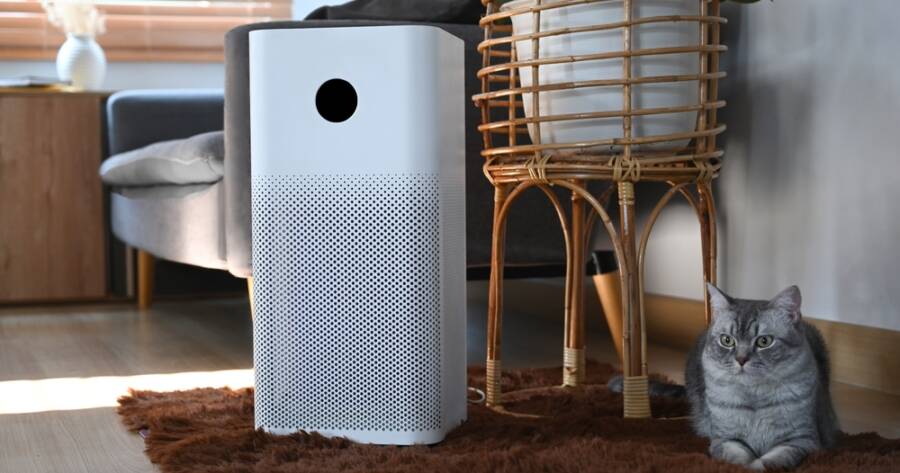Indoor air quality significantly impacts health, potentially causing serious issues like cardiovascular and respiratory diseases. Smart air purifiers introduce advanced technology for enhanced air cleanliness, filtering allergens, dust, and particles efficiently. Explore the health benefits, technological advances, and practical considerations surrounding smart air purifiers and their role in promoting overall well-being.
The Importance of Indoor Air Quality
Indoor air quality is a crucial factor influencing overall health and well-being, as poor indoor air can lead to a myriad of health issues. The World Health Organization (WHO) highlights air pollution as a major environmental health risk, linking it to severe health conditions such as cardiovascular and respiratory diseases, plus certain cancers. With individuals spending most of their time indoors, the quality of air within home spaces becomes paramount. Pollutant concentrations indoors are significantly higher than outdoors, often 2-5 times higher, exacerbating potential health risks. Therefore, maintaining excellent indoor air quality through effective filtration methods is essential for health and comfort by removing harmful particles including allergens and even viruses.
Smart Air Purifiers: The Game Changer
Smart air purifiers bring a whole new dimension to indoor air quality improvement. These devices integrate advanced technology like extensive filtration systems comprising HEPA and carbon-activated filters. Such systems are capable of capturing up to 99.97% of airborne pollutants like dust, pollen, and smoke, ensuring a pollutant-free indoor atmosphere. The importance of HEPA filters in trapping microscopic particles is why they are found not only in homes but also in hospitals. Equipped with these filters, smart purifiers enhance indoor air quality by providing effective air cleaning solutions while being energy-efficient.
Health Benefits of Air Purifiers
Air purifiers offer numerous health benefits, particularly for individuals suffering from respiratory conditions. Studies show that having air filters at home results in improved respiratory health, notably for those with asthma and allergies. The reductions in symptoms and better management of asthma are closely tied to the effectiveness of air purifiers in filtering out particulate matter as small as 0.3 microns. Beyond respiratory benefits, air purification contributes to cardiovascular health by minimizing exposure to harmful particles that could otherwise lead to systemic inflammation, inadvertently reducing risks related to cardiovascular diseases.
Technology Advances in Air Purification
Today’s smart air purifiers utilize advanced technologies beyond mere filtration. Innovations like UV-C technology are integrated to further capture and neutralize airborne microbes and viruses without producing harmful by-products like ozone. Additionally, the use of activated carbon filters in these devices helps trap unpleasant odors and VOCs, furthering the purification process’ efficiency. The integration of such advanced features in air purifiers not only enhances their effectiveness but also empowers homeowners with real-time air quality monitoring and seamless device integration for maximum utility.
Smart Air Purifiers and Sleep Improvement
A significant yet often overlooked benefit of using air purifiers is their capacity to improve sleep quality. By removing allergens, dust, and pollutants from indoor air, these devices mitigate potential sleep disturbances caused by allergies and congestion. Furthermore, smart purifiers operate quietly, with settings that range from a gentle hum to super quiet sleep modes, thereby not only optimizing the air quality but also ensuring a tranquil environment conducive to a restful night’s sleep with minimal disruption.
Practical Considerations and Buying Tips
When choosing a smart air purifier, several factors warrant consideration to ensure you make an informed decision. Room size plays a critical role, as it dictates the capacity of the purifier required to efficiently clean the air. The purifier’s noise level, energy efficiency, and filter replacement costs should also be evaluated. Furthermore, different purifiers are designed to handle varying types of pollutants, so understanding your specific needs—whether it’s allergen removal, odor control, or VOC management—is essential in selecting the best device for your requirements.
Why You Should Learn More About Smart Air Purifiers Today
Smart air purifiers stand as a pivotal solution for enhancing indoor air quality, offering extensive benefits for individuals with respiratory conditions and those seeking to enhance their overall living environment. From advanced filtration technology to health benefits that include improved respiratory and cardiovascular function, these devices provide value that extends beyond simple air cleaning. Their contribution to a healthier home environment encourages a look into their utilization, particularly for those navigating the challenges of remote work and extended indoor time. Understanding the functionalities and advantages of smart air purifiers can prove invaluable in optimizing both physical health and indoor comfort.

